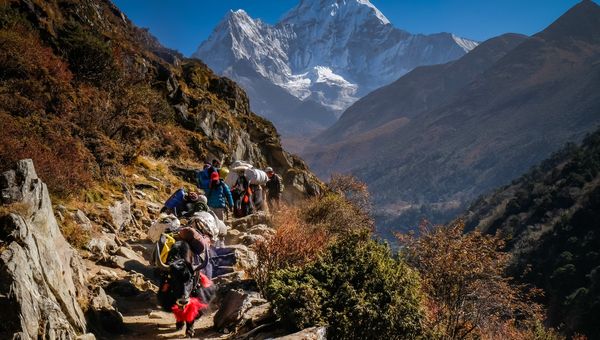Achieving sustainability certificates and accreditation, capping
visitor numbers and encouraging travellers to commit to pledges are
helping travel operators, tourism businesses and destinations to counter
climate change impact and improve their sustainability credentials.
These topics were discussed during a recent PATA webinar looking at
climate change impact on destination reputation, with a panel featuring:
- Olivier Henry-Biabaud, managing director & partner, MMGY TCI Research
- Fabrizio Orlando, global director, Industry Affairs, Tripadvisor
- P. Upali Ratnayake, deputy director general and head of sustainable tourism unit, Sri Lanka Tourism Development Authority.
Commenting on how a tourism business can improve its sustainability
credentials on Tripadvisor’s platform, Orlando said transparency and
accountability are key.
“Sustainability is not a nice to have – it should be at the core of
[tourism businesses’] strategy and their promotional strategy
especially,” he said. “Understand what can be done, how it can be done
and how to be accountable.”
The price of sustainability

Bhutan has implemented a cap on tourist numbers to protect its natural resources and preserve its unique cultural heritage. Photo Credit: Adobe Stock/UlyssePixel
The industry – from travel operators, to destinations to suppliers,
also needs to work harder to counter the higher costs of sustainable
travel. While travellers say they are looking for sustainable
alternatives, these tend to be more expensive or at a more luxury level
and Orlando noted that ‘many travellers’ wallets are not where their
mouths are’.
The panellists also highlighted specific measures that destinations have put in place to manage climate change, such as Bhutan placing a cap on tourist numbers to protect its natural resources and the Palau Pledge, which asks visitors to act in an ecologically and culturally responsible way on the island.
Rising climate concerns in Asia-Pacific
Henry-Biabaud also revealed the rising levels of concern about
climate change in the Asia Pacific region, especially regarding coastal
erosion, extreme weather, and heatwaves. Research from MMGY TCI revealed
a consistent growth in social conversation around climate change in
Asia-Pacific, contrasting with regions like Europe, where discussions
may be seasonal or event-driven, such as during natural disasters or
wildfires.
“There are conversations around coastal erosion issues, because
Asia-Pacific is home to so much natural diversity, extreme weather
conditions, heat waves – there is a lot of anxiety,” said Henry-Biabaud.
“Asia- Pacific still benefits from a very strong robust, positive
reputation overall, but when you deep dive into the same conversations
mentioning climate change, you have many more elements of volatility.”
Understanding the impact on travel appeal

Climate change has affected Nepal's renowned hiking experiences, altering its appeal and future as a trekking destination due to melting glaciers and shifting weather patterns. Photo Credit: Adobe Stock/EWA
Henry-Biabaud believes it’s important for the travel industry to
understand the factors driving these discussions and how it impacts a
destination’s reputation. He cited Nepal as an instance, noting its
iconic hiking experiences now altered by climate change, impacting its
appeal and future standing. Australia is another example, with the
destination often portrayed as a place where climate change is so
visible, because much of the country’s appeal is portrayed through its
nature.
Henry-Biabaud advised destination management organisations to inform
and guide travellers to offset or compensate for negative climate change
impacts, by helping them choose eco-friendly activities or modes of
transport. It’s also about being transparent, educating visitors and not
trying to hide vulnerabilities and problems.
Sri Lanka’s P. Upali Ratnayake said sustainability should be seen as
an opportunity rather than a challenge and outlined how the country aims
to certify a certain number of destinations as sustainable.